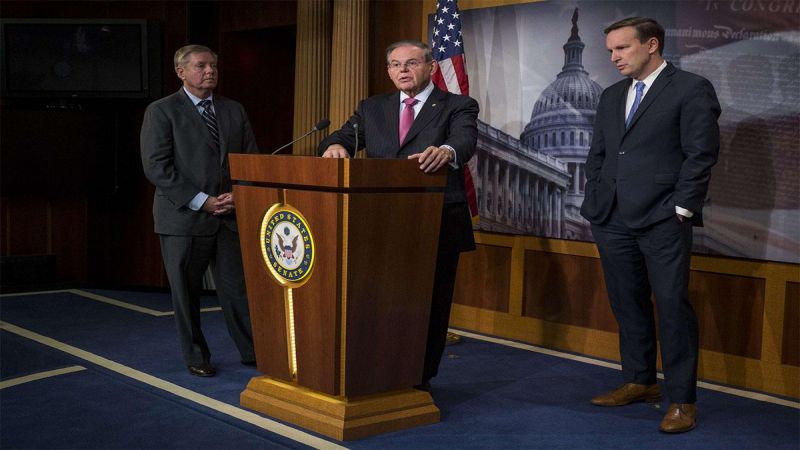
Local Editor
The US Senate voted Thursday to try to force the Trump administration to end its military support for the Saudi-led war in Yemen.
The 56-41 vote marks the first time the Senate has invoked Congress' war powers to challenge U.S. military involvement abroad.
The step was both a condemnation of Saudi Arabia's execution of the Yemen war – which has killed thousands of civilians and created a humanitarian catastrophe – and the kingdom's role in the murder of Jamal Khashoggi.
“Today, we tell the despotic regime in Saudi Arabia that we will not be a part of their military adventurism,” said Sen. Bernie Sanders, I-Vt., who championed U.S. withdrawal.
Senators unanimously approved a separate nonbinding resolution naming Saudi Arabia's crown prince, Mohammed Bin Salman, as responsible for Khashoggi's death. The Washington Post columnist was killed inside the Saudi Consulate in Istanbul on Oct. 2 by a team of Saudi operatives, many of whom have been tied to the crown prince.
The resolution, introduced Thursday by Senate Foreign Relations Committee Chairman Bob Corker, R-Tenn., calls on the Saudi government “to ensure appropriate accountability for all those responsible for Jamal Khashoggi’s murder” and urges the kingdom to “moderate its increasingly erratic foreign policy,” among other steps.
"The United States Senate has said the Crown Prince Mohammed Bin Salman is responsible for the murder of Jamal Khashoggi," Corker said. "That is a strong statement. ... I think it speaks to the values that we hold dear."
The two Senate votes were a direct challenge to President Donald Trump, who downplayed evidence that Saudi Arabia's crown prince was involved in Khashoggi's murder and said the incident should not damage U.S.-Saudi relations. His administration, through his son and adviser Jared Kushner, has cultivated close ties to the kingdom.
A half-dozen Republican senators joined all the chamber's Democrats in passing the Yemen resolution, which would require the United States to stop providing intelligence, targeting assistance in bombing and other military support to the Saudi government and its allies in the Yemen conflict.
Before the Senate vote, House GOP leaders blocked a similar measure from coming up for a vote in that chamber. Proponents vowed to revive the issue when Democrats take power in January.
“We won’t ignore these issues in the next Congress,” said Rep. Eliot Engel, D-N.Y., who will become the new chair of the House Foreign Affairs Committee in January. “It’s a betrayal of the men and women who have served this country in uniform.”
Proponents of the Yemen resolution said America’s involvement in the war was unauthorized, unconstitutional and immoral. The measure was sponsored by Sanders, Sen. Chris Murphy, D-Conn., and Sen. Mike Lee, R-Utah.
“It is Congress, not the president, that has the power to send our men and women into war,” Sanders said as the Senate opened debate Wednesday. Congress has abdicated that responsibility for decades, he said, hailing Thursday’s vote as a turning point.
Sanders and others said they hoped the Senate’s action would bolster negotiations, led by a United Nations special envoy, to end the horrific conflict. Since hostilities began in 2015, the Yemen war has left thousands of civilians dead and created the world’s worst humanitarian disaster – putting millions on the verge of starvation.
Opponents of the resolution said U.S. support for the Saudi-led coalition did not amount to warfare, and they argued that U.S. involvement was vital to helping Saudi Arabia contain Iran's influence in the Middle East.
The war is a proxy battle between Saudi Arabia and Iran. The United States stopped refueling Saudi jets, but it still provides munitions and intelligence to the Saudi government.
"There is a threat in the Middle East posed by Iran and their ambitions which must be confronted," Sen. Marco Rubio, R-Fla., said during Thursday's Senate debate. Rubio suggested that the U.S.-Saudi alliance would be "shattered" if the United States ended its military role in Yemen, and the war would spiral further out of control.
Source: News Agencies, Edited by Website Team